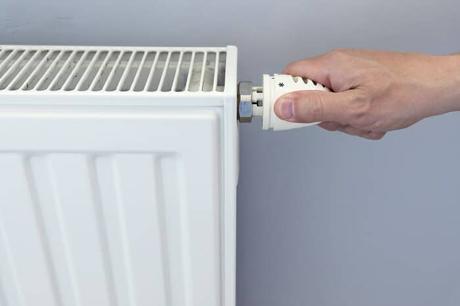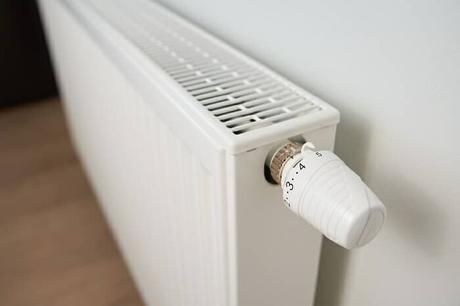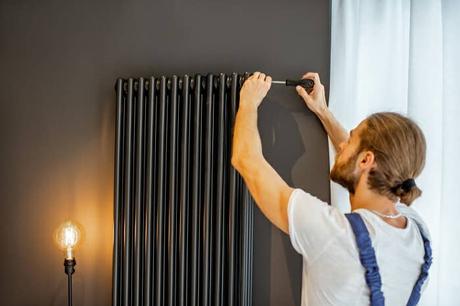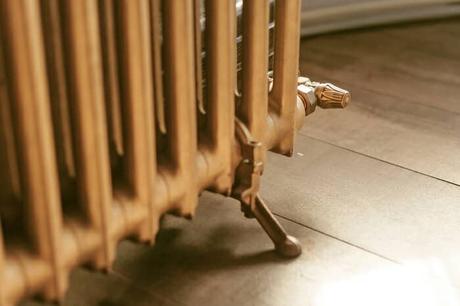What To Do If A Radiator Makes Noise
In general, silence is easy where radiators are concerned, and whilst some may favour brave, bold and loud selections aesthetically, a noisy radiator from a sound perspective can trigger homeowner fear.
But if you do notice a dreaded din emerging from your home heating devices, what can you do to rectify? And are some sounds specifically a cause for greater concern than others?
In this blog, we’ll discuss all types of different radiator noises, explaining what they mean and how they can be combated so you can get back to watching your favorite soaps, or the football, in relative peace.

Radiators Making A Gurgling Noise
Gurgling noises are one of the very most common sounds that emanate from radiators, the cause of which is trapped air within that is desperate to escape. Essentially, whilst hot water is used to heat up radiator pipes, air can sometimes become trapped with said water, leading to the forming of radiators cold spots, typically at the foot of the device.
How To Fix A Gurgling Radiator
The process of bleeding a radiator offers the most simple and common fix for a gurgling radiator. In fact, it is highly recommended that home radiators are bled at least once a year ahead of the colder winter months to make sure they’re primed to perform when you need them the most.
There’s a full detailed guide on how to bleed a radiator in the BestHeating Advice Centre, but as a brief outline, do the following…
Switch off the heating and loosen the valves on each radiator by turning the bleed key anti-clockwise. A hissing noise will occur as air is let free – close the valve again once the hissing has ceased and the excess air has escaped.
After bleeding, radiators should no longer emit a gurgling sound, and should heat up in a far more efficient manner in turn.

Radiators Making A Banging Noise
If you notice your home radiators making a banging noise, the most common cause will be ‘kettling’, which refers to a congregation of limescale within a central heating system, as opposed to the radiators themselves.
On the map, hard water regions are susceptible to kettling, such as the East and South of England, so these areas might be more prone to the presence of banging radiators (noise-wise, not the way the young uns might refer to BestHeating designs).
How To Fix A Banging Radiator
Some instances of kettling can be curtailed by draining the radiators to release trapped air and water. To do so, you need to make sure the gas and boiler supply are switched off, then turn off the intake valve and allow the radiator some time to cool down before re-opening the drain valve. Place a bowl beneath the radiator to catch any liquid that it releases, before switching the valve off and turning everything on again.
For more serious and involved cases where the banging persists after these measures have been taken, a heating system flush could be required. A boiler power flush will make sure all grime and limescale is eliminated, thus reducing noise and increasing the efficiency of your home heating. More information can be found in our guide entitled How To Cure A Noisy Central Heating System.

Radiators Making A Clicking Noise
The very most frequent of radiator noises come in the form of creaks and clicks, and these sounds aren’t actually out of the ordinary. Usually, clicking is resultant from the expansion of the metal as hot water flows into a radiator. In similar fashion, as the radiator cools down, the metal will contract as the hot water decreases in temperature.
How To Fix A Clicking Radiator
Clicking radiator sounds can largely be expected when a home heating system is initially turned on or off. As such, there isn’t really a need to worry about a fix, unless the noises persist and change to one of the alternative outputs suggested in this article.
Radiators Making A Running Water Noise
Air pockets can be the root cause of radiators that are making a sound of dripping or running water. Whilst radiators and alternate devices like heated towel rails will typically rely on water as a heat source, it shouldn’t make an audible sound, so in all likelihood, the trapped air will be preventing the water from traveling around the radiator pipes properly.
How To Fix A Running Water Radiator
A radiator that makes a running water noise is another type that can be cured via the process of bleeding a radiator. Make sure all the trapped air within is allowed out, enabling a steady water flow to circulate throughout your radiator pipes.

Get In Touch With BestHeating
You should hopefully have a decent idea about which radiator sounds mean what, and the types that pose a greater cause for concern than others at this point. But if you would like any further information regarding how to identify certain sounds or what to do when your radiator makes noise, please don’t hesitate to get in touch with the BestHeating team.
We’re always on hand to help with all aspects of home heating, and you can contact us by commenting below, or via Instagram, Facebook or Twitter.


